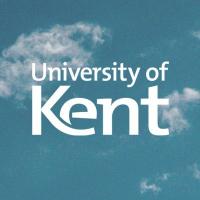Strategic Project Management - MSc
Project Management is ever-growing and evolving as an imperative function to improve efficiency and transparency in modern businesses. Tomorrow’s project managers don’t only need expert organisational skills and the ability to manage conflicting tasks and pressures. They need to understand how to provide leadership of projects and enact organisational change in both a global, and sustainable way. Our MSc Strategic Project Management programme embeds these issues as a core part of out teaching, meaning our graduates are ready to go into the world and effect change.
Kent Business School is ‘triple crown accredited’ this puts us in the top 1% of business schools globally. There is no better place to take the next step in your career and realise your ambitions. Our MSc Strategic Project Management course at Kent Business School is delivered by academic experts and co-developed with industry leaders and experts. You will develop a detailed background of Project Management and strategic theory and the imperative tools and processes project managers use in the business environment. This accompanied with the global outlook and emphasis on an ethical and sustainable approach to project management, means you will be able to not only step into a career in project management, but be a leader in the field.
You will end your Master's with a detailed report on an independent research project with a dedicated expert supervisor. This is a fantastic example of your work, skills and knowledge to show employers after you graduate. Our graduates typically find work in consultancy and employed work both in the UK and globally. You will be well placed to either start you own business, or work in companies such as Deloitte, JP Morgan & Chase, BP and Huawei as examples of businesses many of our graduates have worked in. Whatever your goals are in business, our MSc Strategic Project Management programme is a great first step to get there.
Campus Information
Medway
Our Medway campus is a vibrant mixture of modern and historic buildings. Spread over three different sites within walking distance of each other, we're nestled alongside the Historic Dockyard Chatham.
Intakes
- Jan
- Sep
Application Processing Time in Days: 30
Minimum English Language Requirements
| English Level Description | IELTS (1.0 -9.0) | TOEFL IBT (0-120) | TOEFL CBT (0-300) | PTE (10-90) | |
|---|---|---|---|---|---|
| Expert | 9 | 120 | 297-300 | 86-90 | |
| Very Good | 8.5 | 115-119 | 280-293 | 83-86 | |
| Very Good | 8 | 110-114 | 270-280 | 79-83 | |
| Good | 7.5 | 102-109 | 253-267 | 73-79 | |
| Good | 7 | 94-101 | 240-253 | 65-73 | |
| Competent | 6.5 | 79-93 | 213-233 | 58-65 | |
| Competent | 6 | 60-78 | 170-210 | 50-58 | |
| Modest | 5.5 | 46-59 | 133-210 | 43-50 | |
| Modest | 5 | 35-45 | 107-133 | 36-43 | |
| Limited | 4 | 32-34 | 97-103 | 30-36 | |
| Extremely Limited | < 4 | < 31 | < 93 | < 30 |
Job Opportunity Potential
In these appointments, you will have up to 45 minutes to talk to a careers adviser about whatever career-related topic is important to you. Topics of conversation could include:
- I have no idea what I want to do after I graduate, what are my options?
- What jobs can I get with my degree?
- How do my skills fit in the labour market?
- I’m interested in taking a gap year after I graduate and I want to plan something employers will value.
- I’m thinking of leaving/changing my course and want to talk through the pros and cons.
- I’m interested in doing a masters or PhD, what are my options?
- I’m not sure how to disclose sensitive information to an employer.
A guidance interview is:
Impartial
A careers adviser will not recommend one route to you over another. They are there to help you explore the options objectively.
Challenging
Careers advisers may question your goals and help you to look at the disadvantages as well as the advantages. This is not to put you off, but to help ensure you have thought it through.
Supportive
The meetings are very informal and relaxed. Careers advisers are there to help you discuss things in a safe environment.
Part of a process
Career choice is a process not an event. A guidance interview is a good starting point but you will need to do further research and continuously update your action plan.
PSW Opportunity
2 Years PSW is applicable after the course. (Bachelors & Masters only)
Admission Requirement / Eligibility Criteria
For entry to a Kent postgraduate degree programme (Master’s), Indian students typically need to have completed a three or four-year undergraduate degree (Honours Bachelor degree or Professional degree) at an accredited university or college. General Bachelor degrees may sometimes be considered. Exact requirements will depend on the postgraduate degree you are applying for and the institution you have studied at.
For programmes that require a 2:1 we usually ask for a First Class degree, a final CGPA of 6.0/10, or 60%. Students from top institutions may be considered with a high Second Class degree, a final CGPA of 5.5/10, or 55%.
For programmes that require a 2:2 we usually ask for a high Second Class degree, a final CGPA of 5.5/10, or 55%
Some, but not all, postgraduate programmes require your undergraduate degree to have a related major. Some postgraduate programmes may require work experience in a relevant field or at a certain level.
General postgraduate programmes
IELTS (including IELTS Indicator)
6.5 overall (with a minimum of 6.0 in R&W; 5.5 in S&L)
PTE Academic
62 overall with 60 in each subtest
CAE/CPE
176 overall (with a minimum of 169 in R&W; 162 in S&L)
TOEFL iBT
90 overall (with a minimum of 22 in R; 21 in W; 17 in L; 20 in S)
- Course Type: Full Time
- Course Level: Masters/PG Degree
- Duration: 01 Year
-
Total Tuition Fee:
23900 GBP
Annual Cost of Living: 9207 GBP
Application Fee: 50 GBP
Similar Programs
- International Business and Management with Industrial Placement MSc at University of Kent
- MSc Business Analytics with an Industrial Placement at University of Kent
- The Kent MBA - MBA at University of Kent
- Project Management - MSc at University of Kent
- Organisational and Business Psychology - MSc at University of Kent
- Marketing - MSc at University of Kent

